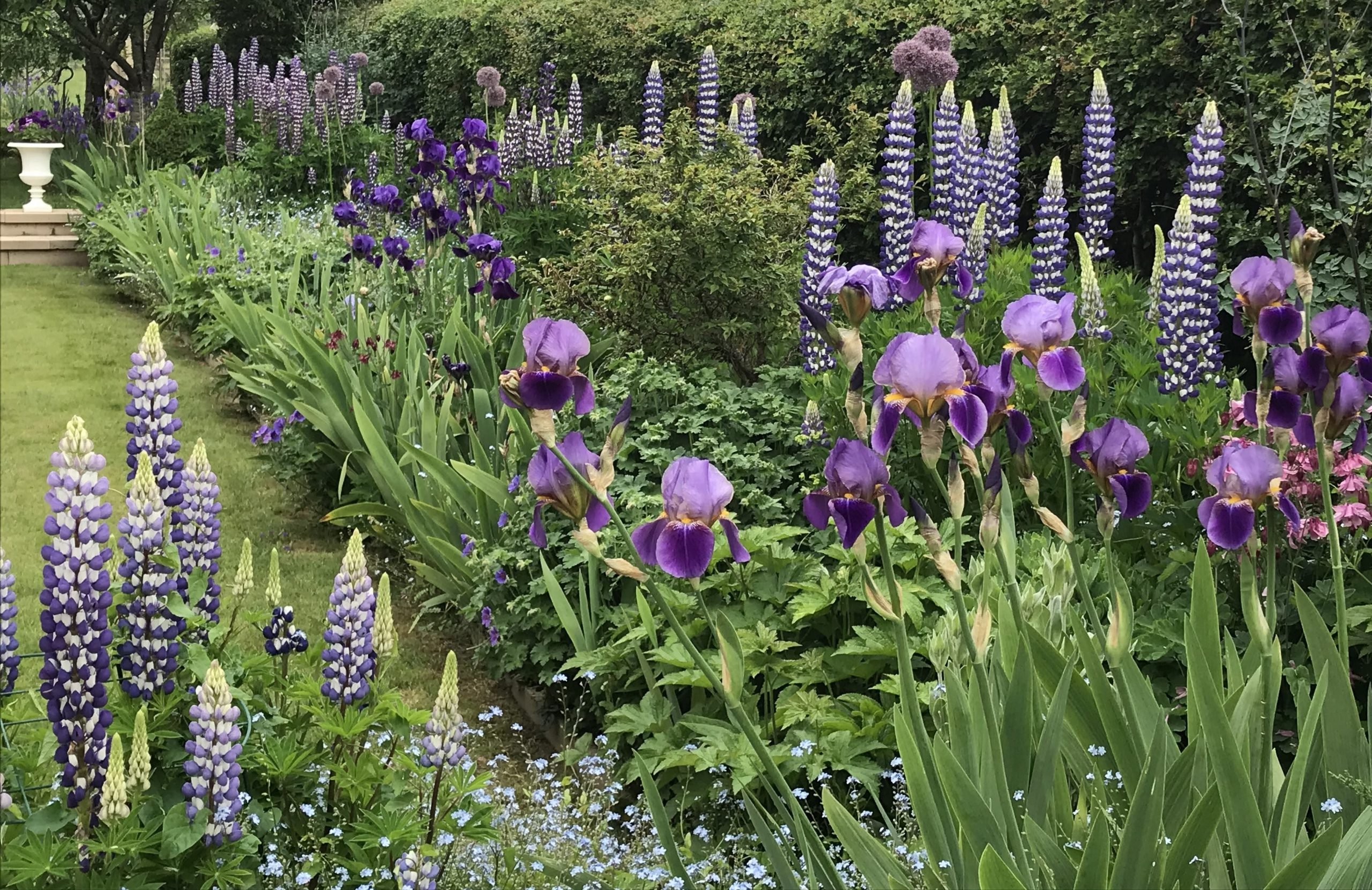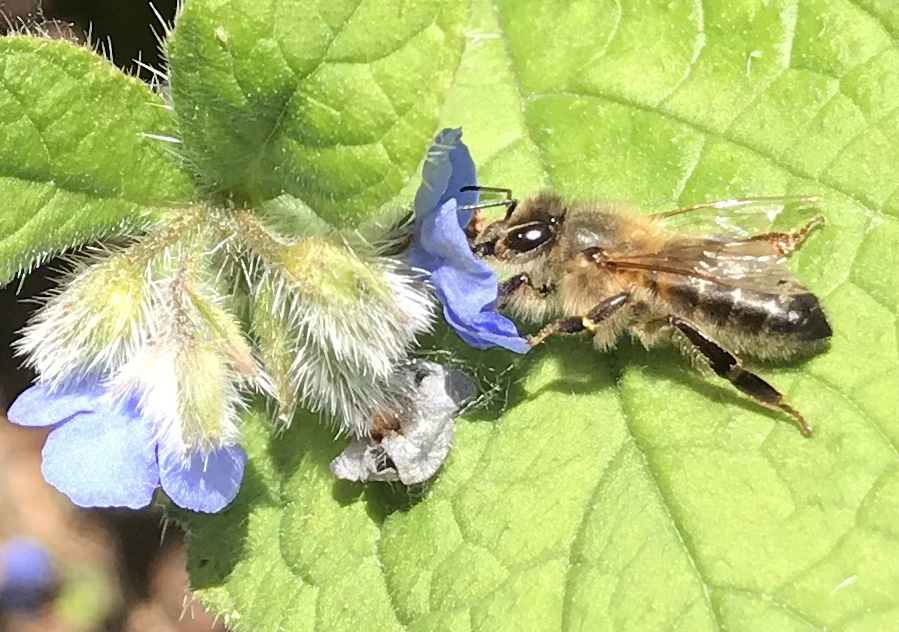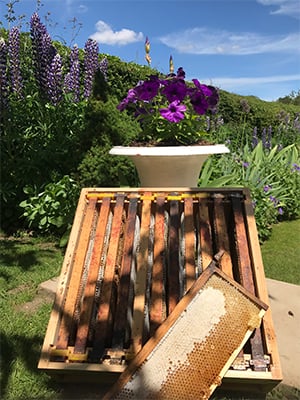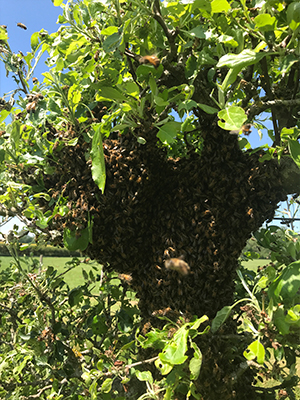Bee blog for June: A swarm in June is worth a silver spoon

There will be a spring honey crop after all, I have taken a break from extracting to write this June blog. What a roller coaster of a year 2021 has been so far. Five weeks of freezing drought was followed by an end of May deluge of cold rain. Spring never really happened; amazingly the sun finally came out on the 26th May right at the very end of the season. But what a difference the little bit of warmth made; the garden leapt out of the ground and the bees literally exploded out of their hives. Three swarms in three days at the end of May.
Summer has arrived with a bang and the forecast is set fair for the foreseeable future according to my BBC weather app. This bodes well for all those gardens opening in the coming weeks. Water in the ground and warmth in the air will bring on the horticultural displays wonderfully. National Garden Scheme visitors have a real treat in store. It is the increase in night-time temperatures that makes such a difference at this time of year. On the morning tour of the garden, cup of tea in hand, one is amazed at how plants have grown during the short hours of darkness.
The bees were certainly not expecting such prolonged bad weather this spring. Their swarm preparations went unobserved as it was too inclement to open the hives. New queens were being bred despite the cold, and as soon as the sun came out the opportunity was not squandered. Swarms emerged from those colonies that were ready to go, and what enormous swarms they were too. Happily, all were caught and will make strong new colonies later this season, as the 17th Century saying goes:
“A swarm in May is worth a load of hay,
A swarm in June, a silver spoon,
but a swarm in July is not worth a fly.”
- Collecting honey
- Swarm in the fruit tree
- The garden blooms
The hope of a spring honey crop was all but been abandoned by the tail end of May. However, a warm week in the garden or in the hive can make an amazing difference. The colonies had expanded, despite the prolonged inclement weather, and were prepared for the blossom that emerged when the sun came out. Hawthorn (Mayflower), Chestnut and Field Bean produced a nectar flow that the bees collected with relish. This was added to the meagre Oil Seed Rape honey that had been stored. Such circumstances are a challenge for the beekeeper as the honey from the Field Bean and Oil Seed Rape flower turns to solid crystalised honey in the comb in no time at all. Once crystalised the honey becomes impossible to extract from the wax frames into which it has been stored. At this time of year when the Field Bean and Oil Seed Rape is in flower, it is an almost impossibly fine balance between losing the crop due to crystallisation and extracting the honey too early. Honey that has not been matured sufficiently by the bees, where the water content remains too high, will ferment in the jar and spoil. Fingers crossed all will be well, I certainly have had some honey that has crystalised in the frame, but most seems to be looking fine.
With swarms safely captured and a spring honey crop to be extracted and bottled up, the outlook for the year looks a little rosier. The garden looks good too! Do come and visit if you can.
Colin David is our bee blogger and garden owner at Southlands Lodge in Oxted, Surrey open to visitors 10 & 11 July.
Read all the blogs and more about bees here: Bee-friendly – National Garden Scheme (ngs.org.uk)





















